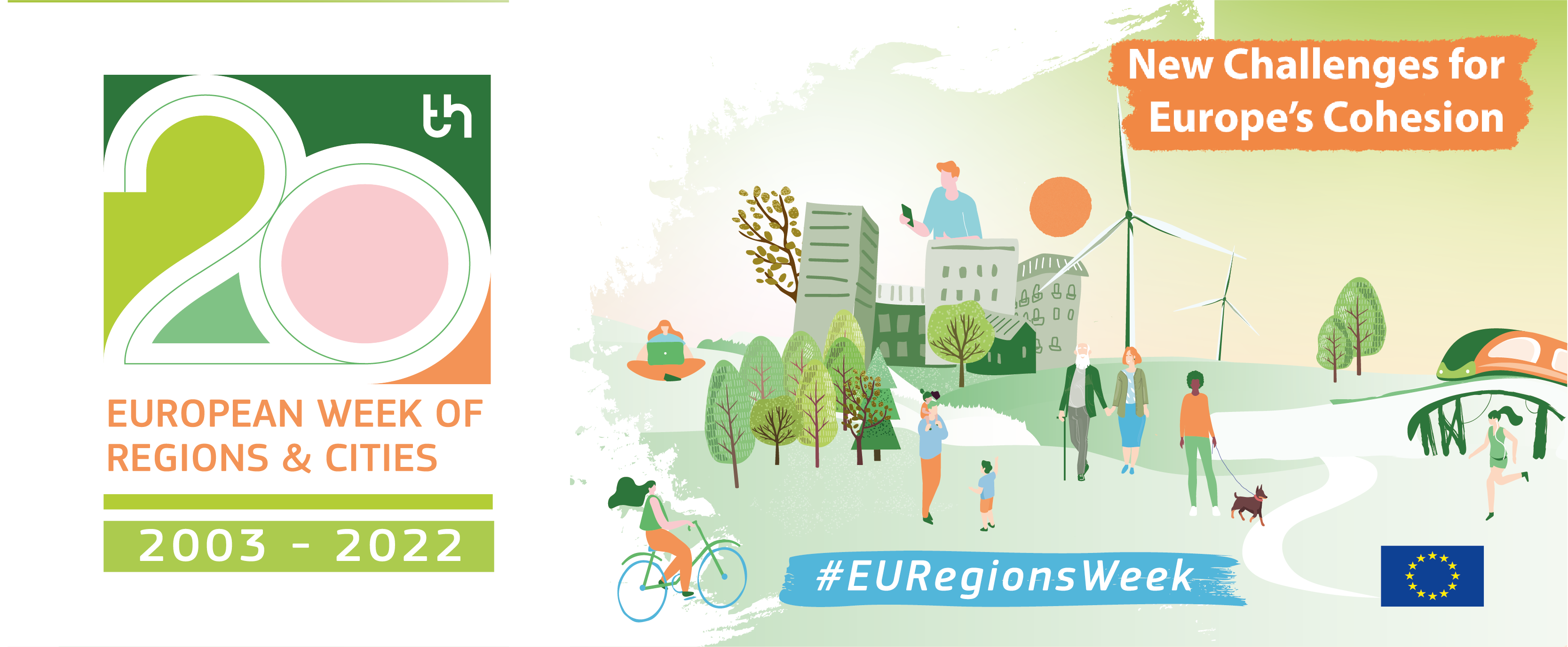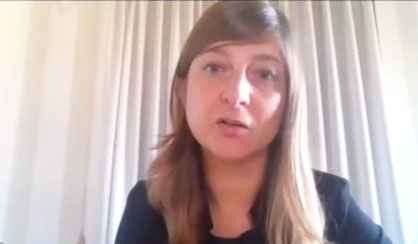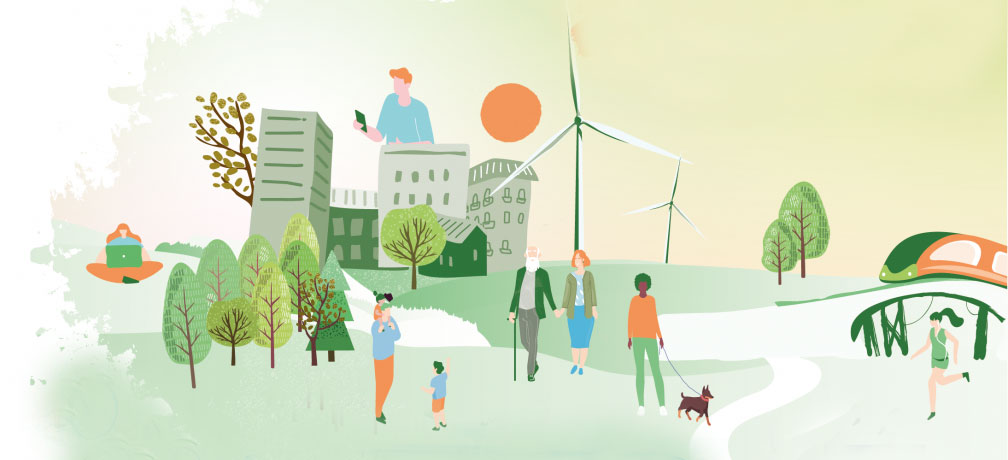REPORT
13 October 2022

PHOENIX at EURegionsWeek 2022
On 13 October 2022, more than 70 participants attended Nobody and nowhere left behind: participatory practices for an inclusive European Green Deal, the workshop organized by the PHOENIX project within the EURegionsWeek.
During the event, high-level panellists talked about the role of participation in the implementation of an inclusive and ‘place-based’ European Green Deal, discussing principles, methods, and tools able to improve participatory and deliberative practices.
The panel opened with an introduction delivered by Elena Ostanel – Assistant Professor at IUAV and moderator of the session – about the importance of merging participatory and deliberative practices to re-design political institutions to make them accountable and inclusive for different people and positions in society.

Elena Ostanel – Assistant Professor at IUAV
Graham Smith, chair of the Knowledge Network on Climate Assemblies (KNOCA), introduced the work of the network, whose objective is to improve the commissioning, design, implementation, impact and evaluation of climate assemblies. The most relevant priority of KNOCA is to identify and disseminate best practices to shape successful participatory processes on climate-related issues.
After listing the features of Climate Assemblies, Smith considered two limitations in current practices. On the one hand, if commissioning, design, implementation and follow-up are not done properly, Climate Assemblies may actually diminish their potential to enable more robust and legitimate climate policy. At the same time, if Climate Assemblies are seen not to work well, they can also diminish democratic practice. On the other hand, the risk for these Assemblies is to “live in a bubble” because the policy system and the broader public discourse are not well articulated. What can we do to ensure that these Assemblies have more impact?
According to Smith, the effort should be focused on four aspects: first, the Assemblies should focus more on critical dilemmas; second, we need to understand how to communicate these Assemblies to broader stakeholders and publics; third, we should be designing processes that could help the recommendations to actually land within public bodies; finally, we need to integrate these Assemblies with other forms of public engagement.

Graham Smith, Professor at University of Westminster, Chair of KNOCA

Daniel Oross, Researcher at the Hungarian Academy of Science, illustrated his elaboration on the link between multi-level governance and Democratic Innovation, here defined as practices of participatory and deliberative democracy.
First of all, Oross stated that the EU can actually play a positive role in incentivising participatory and deliberative practices across the continent, but this role has some conditions to deal with. As many EU countries do not have deliberative systems or they are very limited, according to Oross it is key to have politicians and institutional representatives able to support and promote deliberative and participatory practices. Secondly, it is important to be aware of all the things that could be done at different administrative levels in order to raise citizens’ interest and chances for participation.
In particular, while at local and regional levels institutions should develop techniques for getting information from the public, reaching out to citizens and recruiting participants, the national level should coordinate efforts and initiatives that come from the local and regional levels. Finally, the EU level should develop techniques for providing political uptake and binding commitments, embedding deliberative practices within formal decision-making structures, designing phases of the process (eg. public consultations, summits, citizen panels), determining meeting logistics, and training facilitators.
 Daniel Oross, Researcher at the Hungarian Academy of Science
Daniel Oross, Researcher at the Hungarian Academy of Science
Lise Deshautel, an independent consultant on climate policy and citizen participation and co-founder of KNOCA, focused on a concrete participative experience, the French Citizens’ Convention on Climate (CCC), that was created in the context of the mass protests that took place in France in 2019.
The CCC represented a way to overcome the legitimacy crisis of the French liberal democracy. The CCC was composed of 150 citizens that were randomly selected through complex and co-participated recruitment methodologies. After roughly one year of work, the CCC came out with 149 proposals from 5 working groups (Housing, Transport, Food, Consumption, Work and Production) that were partially implemented by the government through decree and laws. The CCC has been recognized for having wider impacts, among these, a “spill-over” effect to other parts of French society, the ability to fuel the public debate and to increase members’ initiatives with civil society. Given this successful participatory and deliberative experience, what are the lessons for the European Green Deal?
According to Deshautel, we should, first of all, remember that, when it comes to environmental issues, opportunities for citizen participation should always be created before policies are enacted. Second, it is key to rely on recruitment techniques able to ensure diversity among the participants. Finally, in order to deal with participants’ biases and (possible) misinformation about the EGD, it is important to develop deliberation and information tools able to help manage polarisation.
 Lise Deshautel, Independent consultant on climate policies and citizen participation
Lise Deshautel, Independent consultant on climate policies and citizen participation
Finally, Ioana Banach, managing director of the Green European Foundation, whose core mission is to bridge politics and citizens. Banach proposed a more pragmatic point of view, by looking at the strategies and tools to make Democratic Innovations effective and efficient.
She set 5 principles for civil society organisations, which concur with the definition of a successful response to the “polycrisis” we are living through.
The first principle stated by Banach regards the necessity of getting priorities straight. If civil society organizations want to really tackle climate change it is paramount to focus on a limited number of aims. The second principle states the importance of understanding the present in order to build a future vision for Europe.
The third principle is “collective intelligence by design”, which requires creating networks for improving the realisation of better results. The last two points regarded the importance of training and education and the adoption of a mindset of “brutal honesty”, in order to promote a new paradigm of participation.



Follow us on: